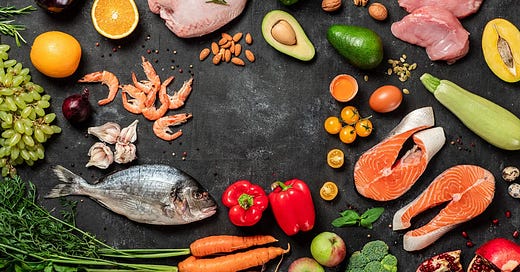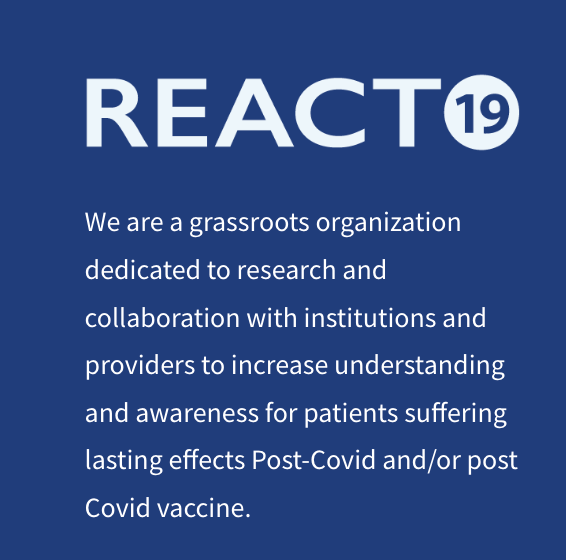
There are a number of health related news stories that deserve reporting this week. Some, or perhaps most of you have probably heard of some of these, and a few did not get much news attention.
This news story from CNN (I know - but they were the first to report and have the most in depth story) is about how CDC investigators at the Ohio train derailment all become sick at the same time and day.
Seven U.S. government investigators briefly fell ill in early March while studying the possible health impacts of a toxic train derailment in East Palestine, Ohio, the U.S. Centers for Disease Control and Prevention said.
The investigators' symptoms included sore throats, headaches, coughing and nausea -- consistent with what some residents in Ohio and across the border in Pennsylvania experienced after the Feb. 3 train derailment that released a cocktail of hazardous chemicals into the air, water and soil.
The investigators who experienced symptoms were part of a team conducting a house-to-house survey in an area near the derailment, and they immediately reported their symptoms to federal safety officers…
Still, experts in chemical exposures say the episode is significant.
It is not clear what caused the investigators’ symptoms – whether chemical exposure or something else, such as fatigue. But the team, some of whom are officers and physicians in the CDC’s Epidemic Intelligence Service, found it suspicious that they became ill at the same time and with the same symptoms, according to an official familiar with the cases who spoke to CNN.
Still, experts in chemical exposures say the episode is significant.
“It adds confirmation that the symptoms reported by East Palestine residents are real and are associated with environmental exposures from the derailment and chemical fire,” said David Michaels, an epidemiologist and professor at the George Washington University School of Public Health who ran the Occupational Safety and Health Administration between 2009 and 2017.
The CDC spoke about the illnesses evidently because social media began to report on the sick investigators and then CDC was forced confirm. If not for social media and citizen journalism, the CDC would not have released this information to the public.
According to mainstream news, the investigators were back on the job the next day - nothing to see here folks… moving on.
For the month of April, Five Times August is donating 100% of digital music sales from the album SILENT WAR to REACT19.org
React19 is a science-based nonprofit offering financial, physical, and emotional support for those suffering from long-term COVID-19 vaccine adverse events.
Five Times August (Brad) has been an amazing warrior in this fight. His website is below and music can be bought directly or through most major digital music distributors.
Learn more about the #FightForYou campaign at http://fivetimesaugust.com/fightforyou.html…
Purchase SILENT WAR: Amazon: https://amazon.com/dp/B0BHL9XD6M
Apple Music: https://music.apple.com/us/album/silent-war/1648715796?app=itunes…
Donate directly to React19 by texting REACT to 50155
The following peer reviewed meta analysis confirms what most of us already know. The “western habitual diet” is one of the most unhealthy if not the most unhealthy on planet earth.
Dietary Patterns and Non-Communicable Disease Biomarkers: A Network Meta-Analysis and Nutritional Geometry Approach
Nutrients 2023, 15(1), 76; https://doi.org/10.3390/nu15010076
Abstract
Quantitative rankings of multiple dietary patterns for their effects on non-communicable disease (NCD) biomarkers is lacking and would inform primary prevention strategies.
Accordingly, a network meta-analysis (NMA) was conducted to compare and rank the effects of different dietary patterns on NCD biomarkers, and associations of dietary patterns’ underlying macronutrient composition with NCD biomarkers were determined by a nutritional geometry approach…
No dietary pattern ranked consistently highest. The Paleo diet received the highest all-outcomes-combined average Surface Under the Cumulative Ranking Curve value (67%), followed by DASH (62%) and Mediterranean diets (57%), whereas western habitual diet was lowest (36%). Our findings were independent of macronutrient composition, highlighting the significance of dietary pattern-level analysis.
A primer: What is the paleo diet?
The paleo diet attempts to mimic the diet that a caveman or hunter-gatherer societies might eat.
The paleo diet consists of: Fruits, Vegetables, Lean meat like grass-fed beef and game meats, Fish, including those high in omega-3 fatty acids like salmon and tuna, Nuts, Eggs, Seeds
These are the foods that are eliminated when on the paleo diet: Grains, Legumes, Dairy, Refined or added sugar, Added salt, Highly processed foods, Certain vegetables that are high in starch like corn, peas and potatoes.
Conclusions
Our NMA showed that the Mediterranean diet was likely the most effective dietary pattern in lipid profile improvement, a low carbohydrate high-fat diet may be beneficial for glycemic control, and the Paleo diet appeared best for reducing inflammation.
No dietary pattern performed consistently best across all major NCD biomarkers or categories, although overall the Paleo diet, DASH diet, and Mediterranean diet had the highest ratings.
The majority of the confidence of evidence ratings were low, indicating more research is needed including high-quality randomised trials with clinical outcomes to determine whether the Paleo diet indeed has a role in NCD prevention. Furthermore, our findings were predominantly independent of macronutrient composition, highlighting the potential importance and significance of evidence and advice at the dietary pattern-level.
That was a lot to get through.
What this study really highlights is that all of the diets listed require that sugar and ultra processed foods be avoided. That grains are either eliminated or severely curtailed. Which means that the “western habitual diet” was least beneficial at improving a lipids profile, insulin resistance and inflammatory markers.
Want to get healthy? Stop eating ultra processed foods, sugar and excess grains.
Another pro-tip. Don’t binge.
Hara hachi bu is a Japanese term meaning “Eat until you’re 80% full.” It originated in the city of Okinawa, where people use this advice as a way to control their eating habits. Interestingly, they have one of the lowest rates of illness from heart disease, cancer and stroke, and a fairly long life expectancy.
How hara hachi bu works
When you look at your plate, decide how much might make you feel full, and then estimate what 80% of that amount would look like. Perhaps it’s two-thirds of the food on your plate. Aim to feel satisfied and not hungry anymore, rather than full.
Have a great Saturday night folks - we are off to have dinner with friends.


















Even more so....if possible....eat in season.
“western habitual diet” new to me. More encompassing I suppose.
Here in the US, we can just call it “SAD” (Standard American Diet). It truly is sad.